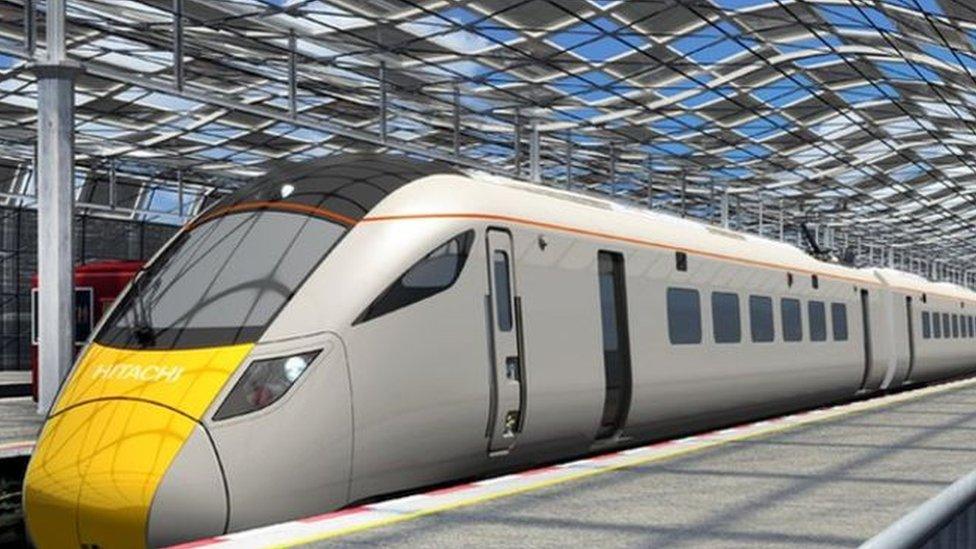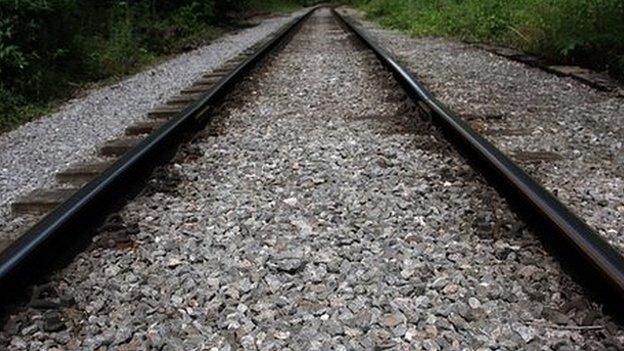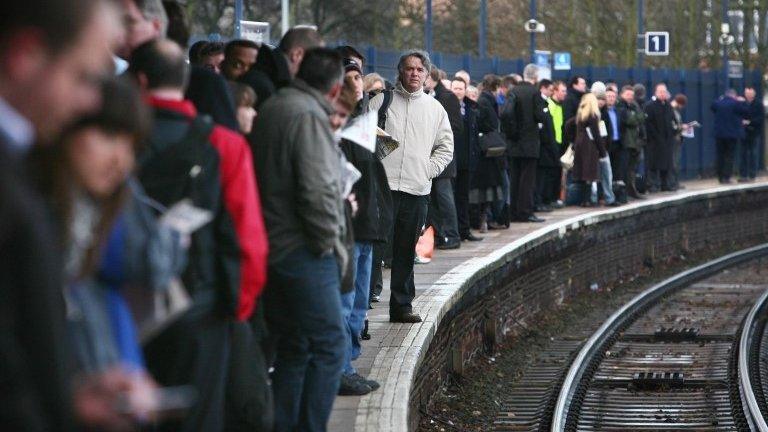Rising rail electrification costs staggering, say MPs
- Published

The estimated £1.2bn rise in the cost of rail electrification between London and Cardiff has been "staggering and unacceptable", MPs have warned.
A Public Accounts Committee (PAC) report, external said Network Rail's severe planning and budgetary failures caused delays and could double the budget.
Between 2014 and 2015 the estimated cost increased from £1.6bn to £2.8bn, not including the extension to Swansea.
Network Rail said changes had now been been made to control costs.
The line from London to Oxford and Bristol Parkway was originally due to be electrified in 2016, to Cardiff in 2017 and Swansea in 2018.
In June UK Ministers "paused" the Midland Main Line and TransPennine route electrification schemes due to costs, but said the Great Western Main Line scheme remained "a top priority".
However, the Public Accounts Committee heard in October that there was now no firm completion date and costs could reach £2.8bn.
Regulator the Office of Rail and Road (ORR), which calculated the £1.6bn estimate, had not been robust enough in scrutinising Network Rail's plans or ensuring it addressed risks, the PAC report said.
The MPs said the delays will put public money at risk as the Department for Transport will have to pay up to £400,000 pounds a day to rent new trains that will not be used until the line is electrified.
Committee chair Meg Hillier said: "Network Rail has lost its grip on managing large infrastructure projects.
"The result is a twofold blow to taxpayers: delays in the delivery of promised improvements and a vastly bigger bill for delivering them."
Mark Carne of Network Rail says rising costs are a 'significant disappointment'
Responding to the report, Plaid Cymru MP Jonathan Edwards said there was "real concern that spiralling costs for compensation to the train operator will compromise when the scheme will be finished".
"A profit-for-dividend model, which sees the shareholders of a private company benefiting from the inevitable disruption to a public infrastructure scheme, must be taken away from rail services," he added.
An ORR spokesman said escalating costs and delays were "unacceptable" and agreed a review of its role was "appropriate" following changes to Network Rail's ownership and finances.
"We need to learn the lessons, and agree with PAC's recommendations that uncertainties in key projects need to be addressed differently."
'Extremely complex'
A Network Rail spokesman said it was clear the industry had been "overly ambitious" about what could be achieved with the money available.
"Network Rail has successfully delivered over 5,000 projects over the past five years, but our understanding of how best to plan and deliver major new electrification schemes was not good enough.
"We have now made significant changes to the way we plan and deliver our investment programme, which will see schemes progress only once they are sufficiently developed that a reliable cost estimate can be established."
He added that electrifying the Great Western Main Line was "extremely complex" on an operational railway and trying to minimise disruption to "line-side" neighbours had increased costs.
- Published20 November 2015

- Published21 October 2015

- Published19 July 2015

- Published25 June 2015
